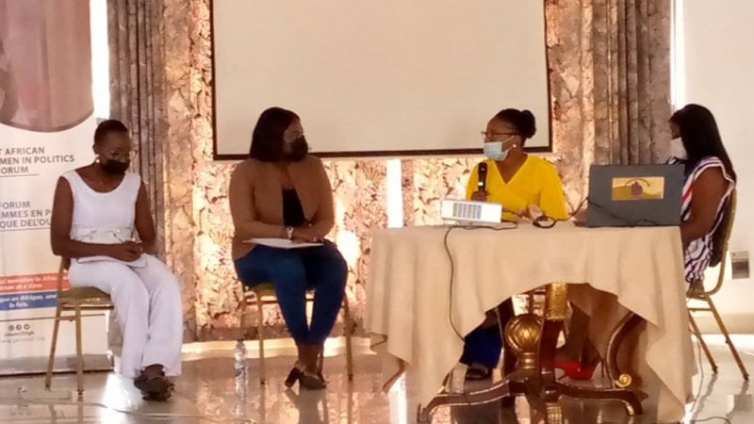Young women in politics have been urged to use their intellectual capabilities to propel the development of the country.
The Eastern Regional Director of the Department of Gender, Juliana Abbeyquaye, also asked people not to underrate young women who strive to take up leadership roles and engage in politics.
“Often time people turn to ask questions such as what can this young woman do when we vote for her to take up the leadership role,” she added.
Madam Abbeyquaye was speaking at the opening of the second session of the West Africa Young Women in Politics Forum in Accra by the Gender Centre for Empowering Development (GenCED) and National for Democracy, both non-governmental organisations.
The two-day forum brought together 30 participants, mostly young women, from Ghana, Nigeria, Niger, Liberia, Sierra Leone, Mali and the Gambia.
They discussed topics such as Challenges of Young women's participation in ECOWAS amidst the Covid-19 Pandemic, Building gender-sensitive structures within political parties to promote the participation of young women and Public Speaking.
Other topics were tackling gender-based violence against young women in political parties and the role of culture and religion as barriers in political participation.
Madam Abbeyquaye called for more stakeholder involvement in sensitising the public against all forms of violence against women and the erroneous perception that young women in politics were for sexual objectification.
A Member of the Loyal Ladies of the New Patriotic Party and a participant, Afia Adepa, said women should be included in decision making as they made excellent judgements.
The Ablekumah South Constituency National Democratic Congress Deputy Treasurer, Ms Rahinatu Issifu, recalled how she braced all odds to attain a position in her party and urged women not give up in the struggle for leadership roles.
The Project Director of GenCED, Elorm Atakli, said the forum was a buildup on the first session of Young Women in Politics held in March 2019.
According to her, women had been marginalised and there was the need to build their capacity to improve on their numbers in politics.
Ms Atakli said GenCED, last year, built the capacity of nine candidates and two of the women won their seats.
She said it was important to educate women on fundraising for their campaigns, sensitize them on the various international and national laws that govern political participation and raise their self-esteem.
She said challenges such as violence, insulting women in the media, religion and cultural barriers must be addressed to encourage more women to participate in politics.
Latest Stories
-
Trinity Oil MD Gabriel Kumi elected Board Chairman of Chamber of Oil Marketing Companies
24 minutes -
ORAL campaign key to NDC’s election victory – North America Dema Naa
42 minutes -
US Supreme Court to hear TikTok challenge to potential ban
47 minutes -
Amazon faces US strike threat ahead of Christmas
1 hour -
Jaguar Land Rover electric car whistleblower sacked
1 hour -
US makes third interest rate cut despite inflation risk
2 hours -
Fish processors call for intervention against illegal trawling activities
2 hours -
Ghana will take time to recover – Akorfa Edjeani
2 hours -
Boakye Agyarko urges reforms to revitalise NPP after election defeat
3 hours -
Finance Minister skips mini-budget presentation for third time
3 hours -
‘ORAL’ team to work gratis – Ablakwa
3 hours -
Affirmative Action Coalition condemns lack of gender quotas in Transition, anti-corruption teams
3 hours -
December 7 election was a battle for the ‘soul of Ghana’ against NPP – Fifi Kwetey
3 hours -
Social media buzzing ahead of Black Sherif’s ‘Zaama Disco’ on December 21
3 hours -
Afenyo-Markin still suffering from the massive defeat – Fifi Kwetey
3 hours

